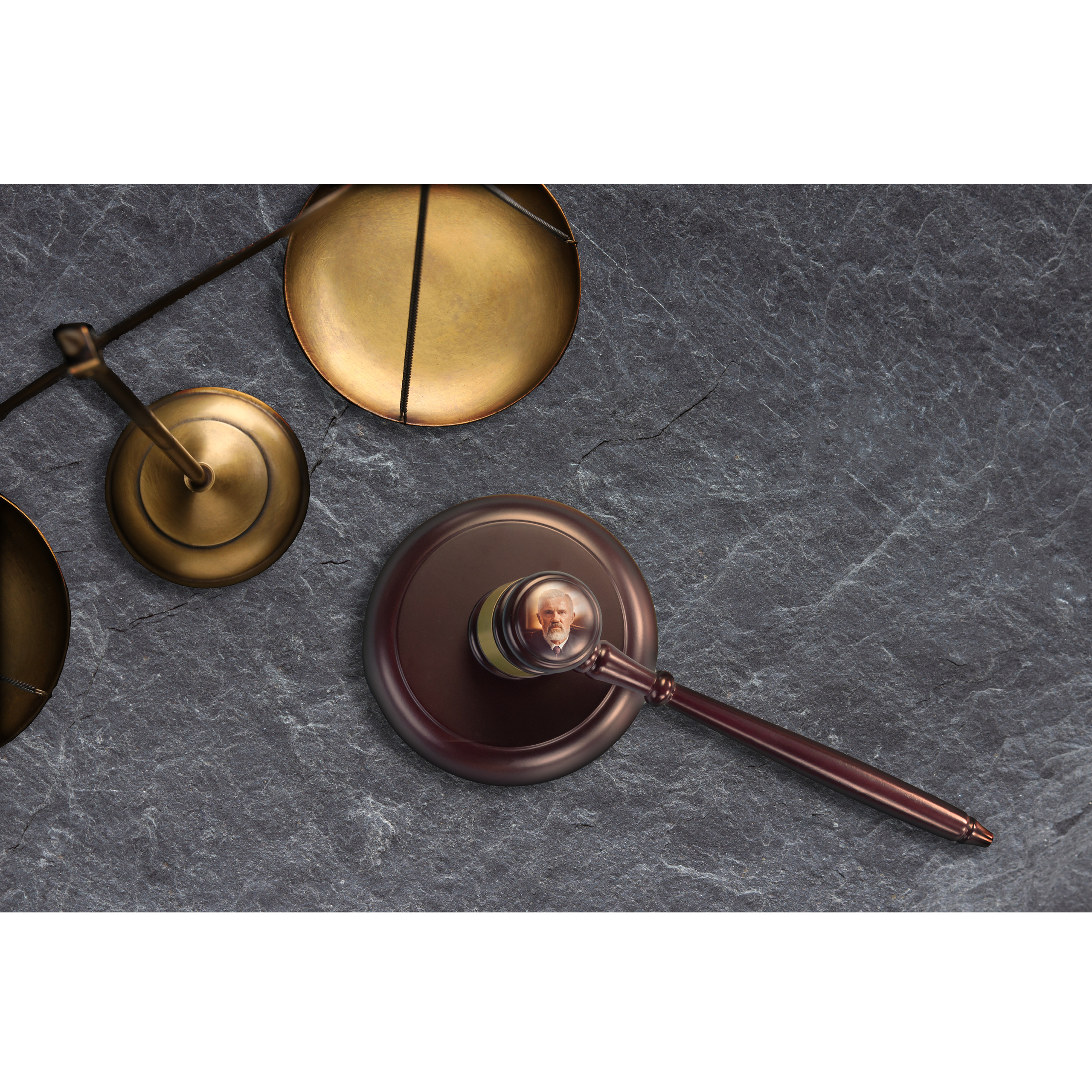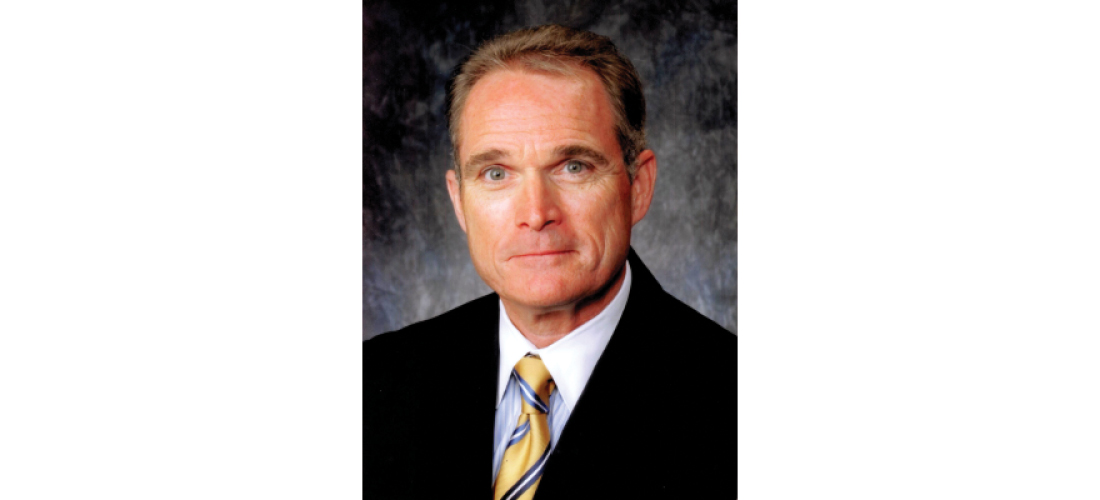
In a 2021 videoconference arraignment, Daniel Gaul, a Cuyahoga County, Ohio, Common Pleas Judge, did not appear particularly pleased with the demeanor of Arthur Smiley, a defendant indicted on two charges of robbery.
As Gaul, who is white, and Smiley discussed the amount of Smiley's bond, Gaul got increasingly irritated, according to the Ohio Supreme Court. In his anger, he raised the amount of money for the bond. He called Smiley, who is Black, "brother."
"This isn't the drive-thru window at Burger King, my friend. You don't get it your way," the judge said, according to the court. The bickering escalated. Gaul found Smiley in contempt of court and then only dropped the charge once Smiley apologized.
Two years later, Gaul found himself in hot water over his treatment of Smiley, along with a list of other accusations of misbehavior and unprofessional conduct covered by the Ohio Code of Judicial Conduct. The Supreme Court of Ohio found that Gaul had committed 29 ethical violations during a period of more than five years.
The court suspended Gaul from practicing law for a year and removed him from the bench without pay during that time. According to the opinion, Gaul coerced pleas, abandoned his role as an impartial arbiter, demeaned litigants, abused his contempt power to avenge a minor slight against him and abused his role as a judge to advance the personal interests of a litigant.

"Rather than promoting confidence in the independence, integrity and impartiality of the judiciary, Gaul's conduct has called those essential elements of our justice system into question while harming multiple litigants," Chief Justice Sharon L. Kennedy wrote for the majority on the court. "Judges—especially trial-court judges—deal with people of varying tempers on a near-daily basis, and a judge's encountering a difficult person does not excuse the judge's duty to exercise fair and impartial judgment and to treat that person with patience, courtesy and dignity."
The opinion effectively ended Gaul's career as a judge. His term was slated to last through 2024, but he's banned from running for reelection in Ohio because the state bars individuals age 70 and older from becoming judges. Born in 1953, Gaul had been a judge since 1991. Gaul's attorney, Monica A. Sansalone of Gallagher Sharp, did not respond to requests for comment.
Gaul is far from the only state court judge disciplined or even suspended in the past year. Each state has a system for investigating and disciplining its judiciary, along with offering advisory opinions to guide behavior.
"There's room for improvement in several states so that the public understands the judicial disciplinary process and it doesn't seem so secretive." —Keith Swisher
In 2023, there were 121 state judicial discipline proceedings made public, according to the Center for Judicial Ethics of the National Center for State Courts. Of those 121 cases, seven judges were removed from office, and 15 agreed to resign or retire and never serve in judicial office again. In addition, 10 judges were suspended without pay as a final sanction. The suspensions ranged from seven days to one year. Also, 75 sitting judges or former judges received public censures, reprimands, admonishments or public warnings, according to the center.
While legal ethics experts say state judicial oversight tends to be more aggressive than in the federal system, there's still a wide difference in execution between jurisdictions. In addition, critics say some states need to make their judicial oversight processes and judicial disclosure reports more transparent.
"Because of concerns about confidentiality when complaints of judicial misconduct are submitted, the public and the press don't find out about the discipline of a particular judge until late in the process, sometimes very late," says Keith Swisher, professor of legal ethics at the University of Arizona James E. Rogers College of Law. "Then, when the information is released, it can be cryptic or redacted. There's room for improvement in several states so that the public understands the judicial disciplinary process and it doesn't seem so secretive."
"We need judges to be ethical and impartial and seen that way by the public." —Jim Moliterno
It is imperative for democracy that judges are held to account for their behavior, says Jim Moliterno, the Vincent Bradford Professor of Law, Emeritus at Washington and Lee University School of Law and an expert in judicial ethics. Increased consistency between states, Moliterno says, would send a stronger signal to the public that judges can be trusted.
"We've certainly seen countries where the people stop trusting the courts. That's when a country is ripe for anarchy," Moliterno says. "Courts are the place where we keep our promise to democracy, so we need judges to be ethical and impartial and seen that way by the public."
Rigorous and consistent oversight of state judges is needed to help ensure their behavior is kept in check, says Jeremy Fogel, the executive director of the University of California at Berkeley School of Law's Berkeley Judicial Institute. Earlier in his career, Fogel served as a Santa Clara County Superior Court judge, followed by 13 years as a federal judge in the Northern District of California.
"In most states, judges have to keep their noses clean and conduct themselves with appropriate demeanor or eventually, they will get in trouble," he says.
In 1908, the American Bar Association approved its first Canons of Professional Ethics for lawyers, but it wasn't until the 1920s that judicial ethics became a hot topic for reform. In 1921, Kenesaw Mountain Landis, a federal judge who was making $7,500 per year, garnered the spotlight when he decided to supplement his income by also serving as the national commissioner of baseball, with an annual salary of $42,500, says Charles Gardner Geyh, the John F. Kimberling Chair and Distinguished Professor at Indiana University Bloomington's Maurer School of Law.
"Congress jumped in and said, 'That's not right. We ought to impeach the bastard, but moonlighting doesn't seem like an impeachable offense,'" Geyh says. Instead, Judge Landis resigned, and the ABA appointed U.S. Supreme Court Justice William Howard Taft to chair a commission on judicial ethics and draft a code of judicial conduct.
Approved in 1924, the Canons of Judicial Ethics were intended to serve as a set of guidelines for judicial behavior in both the federal and state systems. In 1972, the ABA updated the ethical rules, resulting in the Model Code of Judicial Conduct, which the federal system and states use for guidance in writing their own codes of judicial conduct. The U.S. Supreme Court was the exception until November, when it adopted a nine-page ethics code, which states that a justice should "avoid impropriety and the appearance of impropriety in all activities."
"Now at least the Supreme Court has a skeleton code for conduct, but it still doesn't have an enforcement mechanism," Moliterno says.
The only remedy for a U.S. Supreme Court judge who gets mired in ethics problems is impeachment, and that is unlikely to happen, he adds. For federal jurists serving in appellate or district courts, there are only a few discipline pathways such as impeachment, suspension and censure, which are rarely done, Fogel says.
In contrast, each state has some sort of judicial complaint process, with an investigation and a review of allegations against judges. Through these systems, state judges and justices face the possibility of warnings, censures, suspensions and removals.
"The state system is really a whole different world," Fogel says. "States can have a lot of rules that judges have to follow and, depending on the state, if they don't follow the rules, judges can get in a lot of trouble."
Most state codes regulate gifts to judges, requiring that they be at the very least disclosed, especially if there's a chance it will be interpreted as an attempt to influence the outcome of a case. In addition, most states have rules governing the circumstances under which a judge can be invited to a conference and whether their expenses can be paid, Moliterno says.
But transparency is an issue when it comes to the financial disclosures of judges. For example, 26 states don't post online the financial disclosure reports of their state supreme court justices, according to a report released in March by Fix the Court, a nonprofit organization focused on making courts more accountable to the public.
Additionally, states differ greatly in their enforcement of the rules of judicial conduct, with some, such as California, seen as more aggressive in enforcement of judicial misconduct. States like Louisiana and Oklahoma are considered to have a more lenient approach to enforcement, Fogel says.
Renee Knake Jefferson, a law professor and the Joanne and Larry Doherty Chair in Legal Ethics at the University of Houston Law Center, says increased uniformity among the states when it comes to oversight of judges would help public perception of the judicial system.
"If you have judges that are engaging in the same type of behavior, and it's being reported in the media, but the behavior warrants sanctions in one jurisdiction and doesn't in another, the public can take notice and get cynical," Jefferson says.
"Unaddressed problems can affect public perception of all judges." —Jeremy Fogel
Fogel says state disciplinary bodies "need to pay attention to judges who exhibit a pattern of disrespectful conduct."
"The fact that some states have been proactive in this area while others haven't is unfortunate, because unaddressed problems can affect public perception of all judges," Fogel says.
Penny J. White, who served on both the Tennessee Court of Criminal Appeals and the Tennessee Supreme Court, says that when a state supreme court hires, appoints or supervises the disciplinary authority, and the disciplinary authority is the final arbiter of any discipline decision, "the situation is ripe for politics."
"The main weapon against the politicization of the judicial disciplinary process is either to insulate its work from the judiciary by maintaining a completely independent disciplinary system, or to trust that the members of the judiciary who appoint, hire, supervise or review are above reproach," White says.

While Jefferson understands the need for confidentiality to get cooperation from parties, she emphasizes the importance of transparency to educate the public and other judges on what behavior is considered appropriate and what isn't.
"Transparency in the disciplinary process allows the public to actually see that the system is working," Jefferson adds. "Judges will also see and bring their own behavior into compliance, thus avoiding the need for additional discipline."
One of the most common complaints against judges concerns their demeanor both in and out of the courtroom. Judges can and do get in trouble for a variety of inappropriate actions or comments, including racial slurs and misogynistic language.
Accusations of impatient, angry and impolite behavior on the bench prompt a large proportion of judicial misconduct complaints, according to a report by the American Judicature Society published in 1999 and updated in 2009. The report, Ethical Standards for Judges, says jurists who are disciplined for lacking a judicial demeanor are often found to have had a pattern of conduct that may include rude and abusive behavior, biased comments, misuse of the contempt power and sexual harassment of court staff.
Judges need to keep their tempers in check, according to Jefferson.
"Civility is a huge issue in the legal profession in general," she adds. "When a lawyer is in a courtroom, there are certain constraints on how she is expected to behave. We should certainly be able to expect the same behavior from a judge, to treat the lawyers and parties courteously and with respect."
Fogel says that in his experience, a judge's demeanor is crucially important to the litigants in a case.

"Of course, litigants come to court hoping to win, but in my experience, what they care about most deeply is being seen and heard," Fogel says. "If a person comes away feeling that he or she has been treated well, it makes an enormous, positive difference."
White says judges are human and subject to emotion.
"Every judge is invested in his or her job and has heard cases that prompted emotional reactions, but the judge must exercise restraint and remain calm in order to retain objectivity and focus on the job of judging," she says.
States can have a distinctly different take on what is considered appropriate demeanor for a judge. In Colorado, for example, Arapahoe County District Court Judge Natalie T. Chase, who is white, was censured for using the N-word and making other racially charged comments to judicial employees, in addition to having court employees help her with personal matters.
The Colorado Supreme Court in a 2021 order to censure Chase highlighted as concerning a conversation Chase had with a family court facilitator in which Chase repeatedly discussed a racial slur, asking the facilitator if it made a difference how the slur was spelled or used. The facilitator, according to the court, said that Chase's use of the slur was "like a stab through my heart each time." Chase agreed to resign, according to the order.
In censuring Chase, the court said she failed to "maintain the high standards of conduct required of a judge."
Chase's lawyer, John Gleason of Burns, Figa & Will in Greenwood Village, Colorado, declined to comment.
But two years later, a state judge in Texas didn't get in any trouble for referring to Latino defendants using a slur. In June 2023, the Texas State Commission on Judicial Conduct declined to discipline Judge Allen Amos for using the derogatory term during a conversation with defense lawyer Emily Miller. At the time he made the comments, Amos was overseeing a slew of cases involving immigrants arrested on state law charges in a crackdown on border crossings.

The Texas State Commission dismissed Miller's complaint, stating that in its discretion, "the commission determined that the judge's conduct in this particular instance, while not necessarily appropriate, did not rise to the level of sanctionable misconduct."
Miller, who owns her own law firm in Brownwood, Texas, told the Houston Chronicle she was stunned by the commission's decision.
"It's 2023," Miller told the Chronicle at the time. "If using a racial slur against a litigant is not sanctionable, then I don't know what is."
Reached by telephone, Miller said the commission's "lack of action is disappointing, but I'm not surprised by its inaction. I haven't seen an appropriate level of scrutiny by the commission towards judges who misbehave."
Multiple attempts to reach Amos were unsuccessful.
As platforms like TikTok and Instagram become more prevalent in society, some judges are jumping on board. Last year, the New Jersey Advisory Committee on Judicial Conduct filed a formal complaint against Superior Court Judge Gary N. Wilcox for what it described as "inappropriate" TikTok videos. Under the alias "Sal Tortorella," Wilcox posted 40 videos in about two years, several containing "profanity, graphic sexual references to female and male body parts," along with racist terms, according to Maureen Bauman, disciplinary counsel for the New Jersey Advisory Committee on Judicial Conduct. Wilcox's TikTok account has since been deleted.
In one video, Wilcox lip-synced to a Rihanna song with the lyrics, "Ride it, my pony. My saddle is waitin', come and jump on it," Bauman stated in the committee's complaint, charging Wilcox with violating three canons of New Jersey's Code of Judicial Conduct.
The complaint stated that Wilcox, through his social media posts, "exhibited poor judgment and demonstrated disrespect for the judiciary and an inability to conform to the high standards expected of judges."
"Social media brings with it risks, such as any misconduct will be seen by more people." —Renee Knake Jefferson
In his response, Wilcox's attorney, Robert B. Hille, a partner at Greenbaum Rowe Smith & Davis in Roseland, New Jersey, wrote that the videos "seemed like silly, harmless and innocent fun."
"Social media is a relatively new concept, so I think a lot of jurisdictions are feeling their way through how to address it in the context of their systems for the administration of justice," Hille said in a brief phone interview. "With respect to my client, we are hoping to satisfactorily resolve his issues."
Bauman did not respond to a request for comment. The Advisory Committee on Judicial Conduct has not yet scheduled a hearing on the complaint.
One issue is that judges are on social media in many states because they are elected and need to campaign. Social media can be an inexpensive way to reach potential voters.
"There are appropriate uses of social media, such as campaigning for office and using it to educate the public about the process of the judicial system," Jefferson says. "But social media brings with it risks, such as any misconduct will be seen by more people."
Several states have taken a further step to specifically address in their codes of judicial conduct guidelines for behavior on social media. The Supreme Court of California has jumped in twice to offer guidance. In 2018, the court added a comment to Canon 2A of its state code of judicial ethics, stating that a judge "must exercise caution" when posting material on the internet. Two years later, the court added a comment to Canon 2B, stating that if a judge "posts on social media networking sites such as Facebook or crowdsourced sites such as Yelp or TripAdvisor, the judge may not lend the prestige of judicial office to advance the pecuniary or personal interests of the judge or others."
Jefferson notes that social media can involve social discourse that can become heated, and judges need to watch what they say and how they conduct themselves.
"Judges still need to meet a higher standard of respectability and courtesy," Jefferson says. "Social media doesn't change that."